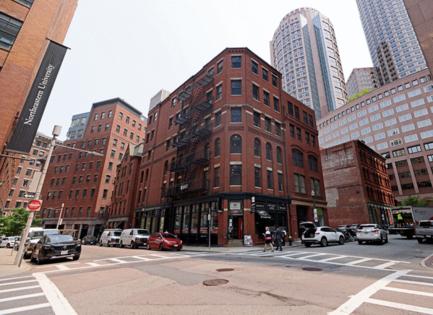Gov. Maura Healey delivers millions to boost downtown Boston housing revival
Published in News & Features
BOSTON — An effort to convert vacant office space into nearly 200 new units of housing in downtown Boston has received a $7.4 million backing from the Healey administration.
Gov. Maura Healey is awarding the state funding to a pair of projects in Boston’s office-to-residential conversion program that Mayor Michelle Wu says she hopes will lead to “greater downtown vibrancy and support for our local small businesses.”
The Boston Planning Department has already approved the two projects: one awarded $4 million to create 110 rental units at 31 Milk St., and the other awarded $3.4 million to produce 80 rental units at 15 Court Square.
All together, the conversion pilot program received 15 applications to convert 606,000 square feet of old office space to create 762 housing units, 139 of which will be deemed affordable, a Planning Department spokesperson told the Herald on Wednesday.
The BPDA board has approved nine projects, with the program’s first applicant, 281 Franklin St., slated to have tenants beginning to move in at the end of the summer, the spokesperson added.
“We need to build more housing across the state to lower costs for everyone,” Healey said in a statement on Wednesday. “That’s why I directed my administration to identify every resource already available to us that could be turned into housing.”
The 31 Milk St. project, approved last month, will renovate what is currently an 11-story office building into 110 residential units, including 22 “income-restricted,” while maintaining a ground-floor post office.
The 15 Court Square project, approved in March, will also renovate an 11-story mixed-use office building into 80 new homes, 16 of them “income-restricted.” The apartments will include a mix of studios and one- and two-bedroom units, while the building maintains its current ground-floor retail space.
“These office-to-housing conversions at 31 Milk Street and 15 Court Square are exactly the kind of bold, creative solutions we need to address our housing crisis while breathing new life into underutilized spaces,” state Sen. Lydia Edwards said in a statement.
The conversion program received a $15-million state boost last summer, with the Healey administration funding up to $215,000 per affordable unit, with a cap of $4 million per project.
Wu said at the time that the money would allow for a year-and-a-half extension of the program.
In her State of the City address this past March, the mayor announced the program would expand to universities and employers looking to reactivate office buildings as dorms or workforce housing.
The Wu administration in the summer of 2023 announced that the initiative would offer a 75%, 29-year tax abatement to building owners who jumped at the chance to convert. The discount was intended to offset the high cost associated with converting office space, designed and engineered differently, to residential uses.
The tax break “could provide a strong incentive to encourage conversion,” officials said.
_____
©2025 MediaNews Group, Inc. Visit at bostonherald.com. Distributed by Tribune Content Agency, LLC.







Comments